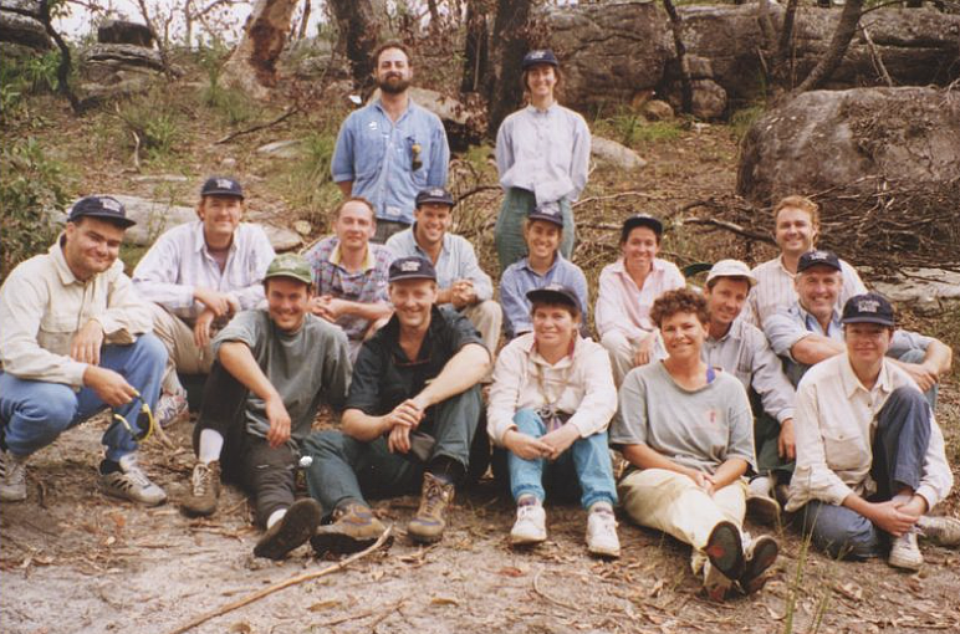
ICDA and BoardPro partnership unlocks digital governance tools for not-for-profits nationwide
Posted on 10 Dec 2025
Adele Stowe-Lindner, Executive Director, Community Directors The Institute of Community Directors…
Posted on 05 Sep 2024
By Greg Thom, journalist, Institute of Community Directors Australia

The Full Court of the Federal Court has dismissed an appeal by Equality Australia to be registered as a Public Benevolent Institution (PBI).
In the much-anticipated decision, Justices Wheelahan, Hespe, and Kennett - sitting in Sydney - ruled in favour of the Australian Charities and Not-for-profits Commission (ACNC) in the long running case.
Equality Australia CEO Anna Brown said the LGTBQI+ rights advocacy group was disappointed with the result, which means while it remains a charity, the organisation will not qualify for tax deductibility status for donations.
“Equality Australia has been involved in legal proceedings to alter the way our charitable status is defined to better reflect the work we do and streamline our donations process,” said Ms Brown.
“As an organisation we transform laws, policies, and practices to protect LGBTQI+ people from discrimination and harm.
“Our work improves the health and wellbeing of LGBTQI+ communities because it addresses the disadvantage, stigma, and discrimination they face as individuals and families.”
At the heart of the legal dispute were questions around whether Equality Australia was entitled to be registered under the PBI charity sub-type as an organisation providing ‘relief of distress’ and whether members of the LGBTQI+ community were persons in need of ‘benevolence.’
"We are obviously disappointed with this outcome."
The ACNC argued in the Administrative Appeals Tribunal (AAT) that the activities of Equality Australia were conducted to achieve changes to laws and government policies that apply to all LGBTQI+ people.
The regulator said this did not constitute the direct and immediate relief to people suffering poverty, sickness, destitution, helplessness, misfortune, or distress which is required for an entity to be a PBI.

The ACNC also believed that Equality Australia’s political advocacy and lobbying activities disqualified it from being a PBI.
Equality Australia has been registered as a charity with the ACNC since 2016, with the subtype ‘advancing public debate’.
In 2020, it applied to the regulator to change its registration to the PBI subtype.
The application was refused by the ACNC because the regulator considered that the charity had a non-benevolent purpose of engaging in advocacy to agitate for law reform and social change. The regulator argued this purpose did not amount to benevolent relief to people in need.
Equality Australia disagreed and took the matter to the Administrative Appeals Tribunal (AAT) which upheld, by a 2-1 majority, the ACNC’s decision to refuse PBI registration.
The tribunal found Equality Australia was not a PBI, as there was an insufficient connection between its activities and the benevolent ends it pursued.
Equality Australia then appealed the AAT’s determination to the Full Court of the Federal Court which heard the matter on 21 May this year before retiring to consider its judgement.
In September 2023, the ACNC updated its guidelines around the contentious definition of PBI status for charities, issuing a new Commissioner's Interpretation Statement (CIS) - the first time it had done so since 2016.
ACNC Commissioner Sue Woodward said the term ‘Public Benevolent Institution’ was not defined in legislation.
“We welcome judicial consideration of this term and will be considering the judgment in the coming days.”
Equality Australia said the Federal Court ruling does not change the fact that Equality Australia remains a fully registered and accredited charity.
“We will continue working to improve the lives and wellbeing of LGBTQI+ Australians,” said Ms Brown.
Alice Macdougall, special counsel at law firm Herbert Smith Freehills said that rather that delivering more clarity, the Federal Court decision had made providing guidance to clients on the meaning or requirements of a PBI more difficult.
"Whether an entity is a PBI, is, according to this decision, a question of fact to be determined based on the ACNC’s understanding of the ordinary meaning of the expression, which must be reasonable and must be consistent with established authority," she said.
"As the expression is not used in our current language, one difficulty is there is no ordinary or customary meaning.
“Benevolence” had a meaning in the 1930s, but now the term is considered old-fashioned and patronising."
Ms Macdougall said that on a positive note however, she believes there is an opportunity for the ACNC to clarify and expand the current interpretation of PBI drawing from past decisions and clarify that there is no limitation on how the exercise of benevolence is manifested.
"Under a modern understanding, this would include addressing causes of distress."
For more in-depth legal analysis of the Federal Court decision, read the full summary compiled by the Australian Centre for Philanthropy and Nonprofit Studies (ACPNS) in its Legal Case Notes Series.

Posted on 10 Dec 2025
Adele Stowe-Lindner, Executive Director, Community Directors The Institute of Community Directors…

Posted on 10 Dec 2025
The Australia Institute has called on the federal government to force Australian businesses to be…

Posted on 10 Dec 2025
Economic empowerment is essential to enabling recovery, restoring agency and preventing future…
Posted on 10 Dec 2025
A long-time advocate for rough sleepers in northern New South Wales has been named her state’s…

Posted on 10 Dec 2025
What a year 2025 has been, particularly at a national level where the Parliament and politics as we…

Posted on 10 Dec 2025
Anyone working in an organisation knows it: meetings follow one after another at a frantic pace. On…

Posted on 10 Dec 2025
As a qualified yoga instructor who learned the practice in her hometown of Mumbai, Ruhee Meghani…

Posted on 10 Dec 2025
Community Directors trainer Jon Staley knows from first-hand experience the cost of ignoring…

Posted on 10 Dec 2025
Stressed, overwhelmed, exhausted… if you’re on a not-for-profit board and these words sound…

Posted on 10 Dec 2025
The Institute of Community Directors Australia trains over 22,000 people each year, which gives us…

Posted on 09 Dec 2025
The late Sir Vincent Fairfax is remembered as a business leader, a chairman of AMP, and an active…

Posted on 08 Dec 2025
A pioneering welfare effort that helps solo mums into self-employment, a First Nations-led impact…